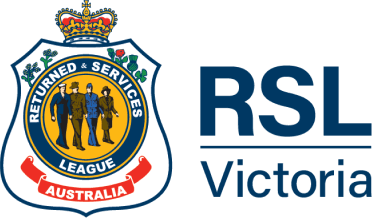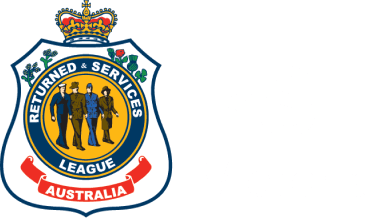Photography by Robert Blackburn.
Many in the Victorian veteran community will be familiar with Joel Sardi, but with so many facets to this aspirational man, his evolving journey continues to be inspirational.
Joel was 19 and looking for a new experience, an opportunity to travel and learn about himself and thought he’d give the Army a go. He entered a gap year program and started a position with infantry. He was sold.
“I was one month into my time at Kapooka and I signed on for the full four-year contract.”
Joel thrived in the environment, loving the commitment and discipline.
“It was like living in a football club seven days a week, 24 hours a day.”
Joel was living the dream serving in the infantry, based in Adelaide.
"We were in training, we were shooting weapons, we were becoming really close mates. I thought this is 10 times better than what you see on TV, or you read or see in the movies. I thought, ‘Imagine what deployment would look like.’ That’s what kept me going."
Joel Sardi
Ultimately, he wanted to go to Afghanistan.
“I’d read about it, I’d seen it on the news, I’d heard about it and I thought, ‘What an experience, what a way to serve my country’.”
At 21 years old, Joel achieved his dream.
“The feeling of flying into Afghanistan and getting off the plane and setting foot on the soil there, and seeing that vast terrain of mountains; it was surreal.”
The eight-month deployment saw him based in Tarin Kowt and Kandahar, taking up several roles and responsibilities, including close personal protection for officials.
“We were ensuring they were safe and meetings went ahead safely with their Afghan counterparts.”
Joel admits he was young and immature and thought he was prepared for it all. Despite all the training to ready himself for Afghanistan, some experiences hit hard.
“Hearing that one of the soldiers that was at the same base as you is, one day, no longer with us...”
Joel’s eyes were opened to the world.
“You see a young boy on a prosthetic leg because his leg was blown off. Over here, we have kids who complain because the WIFI isn’t working in their house.”
Unbeknown to him at the time, he would draw on these life experiences when faced with his own trauma, having to find a new level of perspective.
"I learnt what was hard and what was not when I was overseas, and it was a great introduction for what was to come."
Joel Sardi
Embracing his return home from Afghanistan in December 2013, Joel went on leave and faced life as a soldier in civilian society.
On Saturday night 31 August 2014, a fall changed Joel’s life forever.
"I went from physically able and independent to absolutely dependent, absolutely paralysed. The worst part was that my mind was not damaged."
Joel Sardi
“I could think of everything that was going on, I could think of everything that I was never going to do, and my will collapsed.”
He remembers the countless times he’d cry into his father’s arms.
“I’d say, ‘I can’t do it, it’s not fair’.”
He said it took life experiences, people around him and a lot of work to be able to see the beauty in life after an accident like his.
"No one can break their neck and be okay with it. It took years for me to be okay. It took four years to be okay with it."
Joel Sardi
“During service, you’re exercising every day and if you’re not, you fall behind. You need to be fit; you need to be strong to be able to do the job. Being active was always part of my life prior to service so it didn’t come as something new to me to remain fit and robust. It was definitely a different form of fitness — mentally strong and physically robust.”
“But breaking my neck after returning, suddenly not being able to exercise, is such a contrast.”
Joel was airlifted to Melbourne, where he spent a year in hospital.
“It was learning about catheters, about suppositories.
It was learning about bowel accidents because there were plenty of them. It was learning about all the complications spinal cord injury brings, not only physically but mentally.”
After being discharged, Joel moved back to his childhood family home, returning as a wheelchair user.
Unable to get upstairs and maneuver around the home with ease, RSL Victoria, led by the Greensborough Sub-Branch, stepped in.
"They came to see me [while I was still in] hospital and said they’re here to support me, whatever I need. They approached my mum and said, ‘We’re here to support you, however you need it’."
Joel Sardi
Unable to qualify for financial support from the Department of Veterans’ Affairs (DVA), Greensborough RSL Sub-Branch, together with RSL Victoria and several other Sub-Branches jumped in to provide financial support.
“They paid for most of the accessibility renovations to my parents’ house, provided ongoing support for me and my family, which allowed me to actually move home and have quality of life,” Joel said.
The RSL in Victoria also covered most of the expenses for Joel to travel to a specialised rehabilitation clinic in America for a total of 12 months.
“We [Joel and his then girlfriend, Elisa] were over in a foreign country just by ourselves learning how to kick arse with a spinal cord injury.”
"It makes me proud we were able to do that. That’s our core business, to look after veterans."
Lee Webb, OAM JP
“I think a person’s life and a person’s lifestyle is much more important than the cost of what it takes to support them,” Lee said.
Without the assistance of the RSL network in Victoria, Joel is convinced his life wouldn’t be where it is today.
“I wouldn’t be healthy or alive or living at the level I’m at physically or mentally.”
Joel battled for years to come to terms with his new way of life, calling it an identity crisis.
It was through hard work, perseverance and a series of events that culminated in the turning point of Joel’s acceptance of his injury.
He found the love of his life in Elisa, who had stood by him through it all.
“I knew that Elisa was ‘The One’. Elisa is a woman who can deal with adversity, who can be positive, can live with me. I’m not an easy person to live with, with or without a spinal cord injury.”
They became engaged in 2017 and married the following year.
“I realised with Elisa I can still be ecstatic, the happiest person in the world, regardless of my physical health.”
Around that time Joel began working in the corporate world.
"It was there that I had purpose because people relied on me to do a job. My identity was coming back. I wasn’t just a quadriplegic."
Joel Sardi
Recently Joel has turned some of his biggest insecurities into his success, taking the public speaking circuit by storm.
“I was shit-scared. I was asked to tell my story to the Army football team and people were blown away by it; I guess the ups and downs and how raw I was. I got asked again and again for a couple of other people and started doing it for free and then it turned into a business.”
Joel doesn’t take to the term ‘motivational speaker’ warmly. He prefers the term ‘educator’ to describe what he does, and for good reason.
"Your perspective determines everything. Your perspective controls your narrative, controls your outcome. Everybody goes through adversity, it’s unmissable, it’s unavoidable, but you can come out from it as a constructive, somewhat positive person by harnessing your perspective."
Joel Sardi
He said it’s rewarding for him to help people through conversation.
“I get the gratification that if I know I’ve changed one person’s mindset that may have changed their life and may have saved their life. That’s what I take from it.”
On a personal level, he is more content than he could have ever imagined, as the father of two young girls.
“Challenging, rewarding, endlessly challenging and rewarding,” he laughs as he describes fatherhood.
"It’s incredible. These two little kids are ours and we have direct influence on them and impact on their lives growing up. They know me as Dad, wheelchair or not."
Joel Sardi
As a young soldier, Joel had a vision of telling his grandkids war stories one day — once a dream that is now in reach.
“I always said that I wanted to become a grandparent one day and sit back and tell my grandkids something I can be proud of.”
War stories that are now only a small part of all that Joel can be proud of and share.
“What I’m living now, that’s what he [Dad] meant. It’s just getting back to a life where you can be happy. This is what my dad was referring to when he said,
‘We’ll get through it’.”

